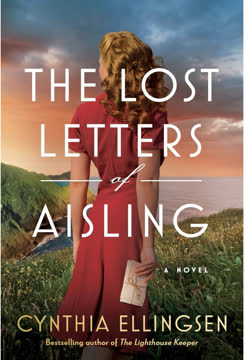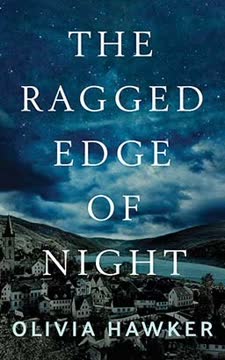Plot Summary
Orphaned Hearts Meet
In 1929 Florence, young Eva Rosselli, a Jewish girl, and Angelo Bianco, an American-Italian Catholic boy with a missing leg, are brought together by family ties and shared grief. Eva's mother has died, and Angelo's mother has recently passed, leaving him uprooted and silent. Their bond forms through Eva's relentless warmth and Angelo's quiet observation, as they navigate the complexities of family, religion, and identity. Their friendship is cemented by a promise to be each other's family, transcending religious boundaries. The seeds of a lifelong connection are sown, with Eva's vivacity and Angelo's steadiness shaping their intertwined destinies.
Faith and Family Divided
As the 1930s progress, Eva and Angelo's relationship deepens, but the world around them grows more dangerous. Italy's Racial Laws begin to erode the safety of Jewish families, including the Rossellis. Eva's father, Camillo, and uncle Augusto debate politics and faith, while Eva herself is largely shielded from the growing anti-Semitism. Angelo, meanwhile, is drawn further into the Catholic seminary, creating a rift between the two as religious and societal pressures mount. Their love and loyalty are tested by the world's insistence on their differences, foreshadowing the trials to come.
Shadows of Persecution
The late 1930s bring escalating restrictions: Jews are banned from schools, professions, and public life. Eva's dreams of university and music are crushed, and her family's livelihood is threatened. Refugees from Germany and Austria pass through their home, bringing stories of horror that seem distant but soon become reality. The Rossellis and their friends scramble to adapt, forging documents and hiding their identities. Angelo, now a seminarian, is torn between his calling and his love for Eva, as the world grows more perilous for those he holds dear.
Forbidden Love Ignites
On a summer holiday in Maremma, Eva and Angelo's simmering feelings erupt into passion. A stolen kiss in a rainstorm and a night of confessions reveal the depth of their longing, but also the impossibility of their union. Angelo's commitment to the priesthood and Eva's Jewish identity are now legal and spiritual barriers. Camillo, recognizing the danger, urges Angelo to use his position in the Church to help Jews, including Eva. Their love, both a source of hope and pain, becomes a secret rebellion against a world determined to keep them apart.
Laws, Losses, and Longing
Italy enters World War II, and the Rosselli family is shattered. Eva's uncle Felix, unable to bear the mounting losses and humiliation, takes his own life. Camillo is arrested and deported, vanishing into the abyss of Auschwitz. Eva, stripped of her music and family, is left with only memories and longing for Angelo, who has become a priest. Their brief reunion is fraught with unspoken love and the knowledge that their paths have diverged. The war's cruelty is matched only by the ache of what might have been.
Shattered Dreams, Silent Prayers
Eva sits shivah for her uncle and, symbolically, for her lost love. Angelo, now a priest in Rome, is drawn into the underground network aiding Jews. Eva, refusing to hide passively, insists on helping, forging documents and risking her life. The Church, once a symbol of division, becomes a sanctuary for the persecuted. Their faith—Jewish and Catholic—offers both solace and torment, as prayers for deliverance go unanswered. The city is a labyrinth of secrets, betrayals, and small acts of courage.
Hiding in Plain Sight
Eva flees Florence for Rome, assuming a new identity as Angelo's "sister." She boards at the Convent of Santa Cecilia, where nuns and priests risk everything to shelter Jews. The city is alive with rumors, roundups, and the constant threat of betrayal. Eva's skills as a forger and her fluency in languages make her invaluable, but also a target. The boundaries between faiths blur as survival becomes paramount. Angelo and Eva's love, now forbidden and dangerous, is rekindled in stolen moments, even as the world closes in.
Gold, Betrayal, and Resistance
The Germans extort gold from Rome's Jews, promising safety but delivering only deportation. Eva, working as a secretary at Gestapo headquarters, discovers the hoard of abandoned gold and begins smuggling it to fund the underground. Betrayal comes from unexpected quarters, as friends and even clergy are forced to choose between complicity and resistance. Eva's courage grows, but so does the danger. Angelo, torn between his vows and his love, becomes ever more entangled in the fight to save lives, even as the cost mounts.
The Night of Roundups
The infamous October roundup sweeps through Rome's Jewish quarter, sending over a thousand men, women, and children to their deaths. Eva narrowly escapes, hiding with the Sonnino family as the city is scoured for Jews. The Church's network is tested to its limits, with priests and nuns risking arrest and execution. Angelo's role as protector becomes both a blessing and a curse, as he is forced to make impossible choices. The city's silence is broken only by the sound of boots and the tolling of church bells—a coded warning of raids.
Music Amidst the Ruins
Eva's violin becomes both her weapon and her refuge. Forced to play for German officers, she transforms her music into an act of resistance, a reminder of beauty in a world of brutality. Her performances, both public and secret, inspire hope among the hidden and the hunted. Angelo, carrying her violin through the war, clings to the memory of her music as a lifeline. Their love, expressed in notes and melodies, survives even as their bodies are separated by war and fate.
The Price of Defiance
Betrayed and arrested, Eva and Angelo are imprisoned and tortured at Via Tasso. Angelo is offered a devil's bargain: betray the hidden Jews in exchange for Eva's life. He refuses, enduring brutal beatings and the agony of helplessness. Eva, witnessing his suffering, is broken but unbowed. Their love, consummated in the shadow of death, becomes an act of defiance against a world determined to destroy them. The cost of resistance is high, and the line between martyrdom and survival blurs.
The Ardeatine Massacre
Angelo is swept up in the reprisal massacre at the Ardeatine Caves, where over three hundred men are executed. By a twist of fate and the mercy of a reluctant German soldier, he survives, wounded and haunted. The city mourns, and the stench of death permeates the air. Eva, believing Angelo dead, is deported on a train bound for Bergen-Belsen. Both are left with nothing but hope and the memory of love—a fragile thread in a world unraveling.
Trains to Nowhere
Eva endures the horrors of transport: filth, hunger, and the slow erosion of dignity. Rumors swirl about their destination—Bergen-Belsen, not Auschwitz—a small mercy in a world of suffering. In the darkness, Eva dreams of her father and Angelo, finding the strength to survive. The train becomes a crucible, forging her will to live even as hope fades. The past and present blur, and the only escape is through memory and the promise of reunion.
Jumping for Survival
As the train nears Germany, Eva and a young boy, Pierre, seize a desperate chance. With the help of a gold file, they break through the barred window and jump into the night, risking death for a sliver of hope. The escape is harrowing, but they survive, navigating forests and villages with the help of sympathetic priests and strangers. Eva's journey becomes a testament to resilience, as she carries not only her own survival but the hopes of those left behind.
Reunion in War's Ashes
In the frozen ruins of Bastogne, as the Battle of the Bulge rages, Angelo and Eva are miraculously reunited. Eva, pregnant with Angelo's child, is on the brink of giving birth. Amidst bombs and chaos, Angelo delivers their son, a symbol of hope and renewal. Their love, tested by war and loss, is finally fulfilled. Friends and allies gather, and the music of Eva's violin once again fills the air, a requiem for the dead and a hymn for the living.
Miracles in Bastogne
As the war ends, Eva's music becomes a balm for the wounded and a celebration of survival. The couple, joined by friends and their newborn son, find solace in each other and in the small acts of kindness that defied the darkness. The world is forever changed, but in the ruins, new life and love take root. The past is honored, the dead remembered, and the future embraced with cautious hope.
Aftermath and New Beginnings
In the years after the war, Eva and Angelo build a life together in America, raising children and honoring the memory of those lost. Their marriage, unrecognized by the Church but sanctified by love, becomes a testament to resilience and faith. The scars of war linger, but music, family, and the lessons of the past guide them forward. Their story, born of sand and ash, is one of transformation, forgiveness, and the enduring power of love.
Characters
Eva (Batsheva) Rosselli
Eva is the heart of the story—a Jewish violinist whose life is shaped by loss, love, and the relentless tide of history. Orphaned young, she clings to family and music as anchors. Her relationship with Angelo is both a source of joy and pain, complicated by faith, war, and societal barriers. Eva's journey from privileged girl to hunted fugitive is marked by courage, defiance, and a refusal to surrender her identity. Her psychological resilience is tested by betrayal, torture, and the loss of loved ones, yet she endures, finding hope in small acts of rebellion and the transformative power of love. Her development is a testament to the human spirit's capacity for survival and forgiveness.
Angelo Bianco
Angelo is defined by loyalty, faith, and a deep sense of responsibility. Marked by physical disability and emotional wounds, he seeks purpose in the priesthood, only to find his heart torn between duty and love for Eva. His journey is one of self-discovery, as he navigates the moral ambiguities of war, the demands of faith, and the agony of impossible choices. Angelo's psychological struggle is rooted in guilt, longing, and the fear of failing those he loves. His transformation—from obedient seminarian to resistance leader, from priest to lover and father—mirrors the story's themes of sacrifice, redemption, and the search for meaning in chaos.
Camillo Rosselli
Eva's father, Camillo, is a pillar of strength and wisdom. A secular Jew with deep roots in Italian culture, he balances tradition with adaptability, guiding his family through the rising tide of anti-Semitism. His love for Eva is fierce and unconditional, and his willingness to risk everything for his family's survival shapes the narrative. Camillo's psychological complexity lies in his struggle between hope and realism, faith and skepticism. His ultimate fate—arrest and death in Auschwitz—underscores the story's tragic dimension and the cost of resistance.
Felix Adler
Eva's uncle and violin teacher, Felix is a refugee from Austria, scarred by loss and displacement. His relationship with Eva is fraught with tension, love, and the burden of high expectations. Felix's psychological decline, culminating in suicide, reflects the cumulative trauma of exile, humiliation, and the destruction of his world. His legacy endures in Eva's music and her determination to survive, serving as both a warning and an inspiration.
Santino and Fabia
Angelo's Catholic grandparents, Santino and Fabia, embody the possibility of interfaith solidarity and the quiet heroism of ordinary people. Their home becomes a sanctuary for Jews and a symbol of resistance. Fabia's nurturing and Santino's wisdom provide emotional ballast for both Eva and Angelo. Their survival and eventual emigration to America represent the endurance of family and the hope of new beginnings.
Mario Sonnino
Mario, a Jewish physician, is a key figure in the resistance network. His family's survival is intertwined with Eva and Angelo's courage. Mario's psychological journey is marked by gratitude, survivor's guilt, and a determination to repay the debt of life. His role as healer and witness to suffering deepens the story's exploration of moral responsibility and the bonds forged in adversity.
Greta von Essen
Greta, the wife of a German officer, is both a friend and a threat to Eva. Her loneliness and need for connection make her vulnerable to manipulation, leading to Eva's exposure. Greta's psychological complexity lies in her capacity for remorse and her eventual attempt at redemption. She represents the moral ambiguity of those caught between complicity and conscience.
Captain von Essen
As a German officer, von Essen is both charming and ruthless, capable of moments of civility and acts of unspeakable cruelty. His psychological profile is marked by a need for control, a capacity for rationalization, and a chilling detachment from suffering. He is both a product and perpetrator of the Nazi regime, serving as a foil to Angelo's compassion and Eva's resilience.
Monsignor O'Flaherty
The Irish priest who orchestrates much of the underground resistance, O'Flaherty is a figure of courage, wit, and unwavering faith. His ability to navigate the treacherous politics of Rome and the Vatican makes him indispensable. Psychologically, he balances pragmatism with idealism, serving as a mentor to Angelo and a symbol of the Church's potential for good.
Pierre LaMont
The young boy who escapes the train with Eva, Pierre represents the countless children caught in the machinery of war. His journey from fear to resilience, guided by Eva's care, underscores the story's themes of loss, survival, and the enduring need for family. Pierre's fate is a reminder of the war's impact on the most vulnerable and the possibility of new beginnings.
Plot Devices
Dual Faith and Identity
The narrative is structured around the tension between Jewish and Catholic identities, embodied in Eva and Angelo's relationship. Their love is both a bridge and a battleground, forcing them to confront the boundaries imposed by faith, law, and society. This device allows the story to explore questions of belonging, sacrifice, and the possibility of reconciliation in a fractured world.
Historical Backdrop and Real Events
The plot is anchored in meticulously researched historical events: the Racial Laws, the October roundup, the Ardeatine massacre, and the liberation of Rome and Bastogne. Real figures like Monsignor O'Flaherty and Rabbi Cassuto lend authenticity, while the use of actual locations—convents, synagogues, and battlefields—grounds the personal drama in the collective tragedy of the Holocaust.
Music as Symbol and Salvation
Eva's violin is a recurring motif, symbolizing both her heritage and her resistance. Music becomes a means of survival, a form of protest, and a source of solace. The act of playing—whether for Nazis or for the hidden—transcends words, connecting past and present, life and death.
Foreshadowing and Dreams
Eva's recurring dream of jumping from a window foreshadows her eventual escape from the train. The motif of dreams and omens, including the fortune-teller's prophecy and the symbolism of Saint George, weaves a thread of fate and agency throughout the narrative, highlighting the tension between destiny and choice.
Letters, Confessions, and Journals
The use of confessions, journal entries, and letters provides intimate access to the characters' inner lives, allowing for psychological depth and emotional resonance. These devices also serve as a record of survival, a testament to memory, and a bridge between past and future.
Sacrifice and Moral Dilemmas
The plot is driven by moments of sacrifice—Angelo's refusal to betray hidden Jews, Eva's decision to risk her life for others, and the choices faced by bystanders and collaborators. The story continually asks what it means to do the right thing when every option carries a cost, and how love can both demand and transcend sacrifice.
Analysis
From Sand and Ash is a sweeping, emotionally charged exploration of love, faith, and survival in the darkest chapter of modern history. Amy Harmon's novel transcends the boundaries of a typical wartime romance, using the forbidden relationship between a Jewish woman and a Catholic priest to interrogate the nature of identity, the limits of faith, and the meaning of resistance. The story's power lies in its refusal to offer easy answers: love is both a refuge and a source of pain; faith is both sustaining and fraught with doubt; survival is both a victory and a burden. The novel's historical grounding—rooted in real events and figures—lends gravity to its fictional arc, while its use of music, dreams, and confessions provides a lyrical counterpoint to the brutality of war. Ultimately, the book is a meditation on the choices that define us, the courage required to hold on to hope, and the possibility of redemption in a world scarred by loss. Its lessons are as urgent today as ever: that compassion can bridge the deepest divides, that silence in the face of evil is complicity, and that even in the ashes, new life can emerge.
Last updated:
Review Summary
From Sand and Ash is a highly acclaimed historical fiction novel set in World War II Italy. Readers praise Harmon's masterful storytelling, vivid characters, and the poignant love story between Eva, a Jewish woman, and Angelo, a Catholic priest. The book is lauded for its emotional depth, historical accuracy, and exploration of faith, love, and survival during a dark period. Many reviewers consider it a life-changing read, comparing it favorably to other beloved historical fiction works. The novel's powerful narrative and beautiful prose have left a lasting impact on readers.









